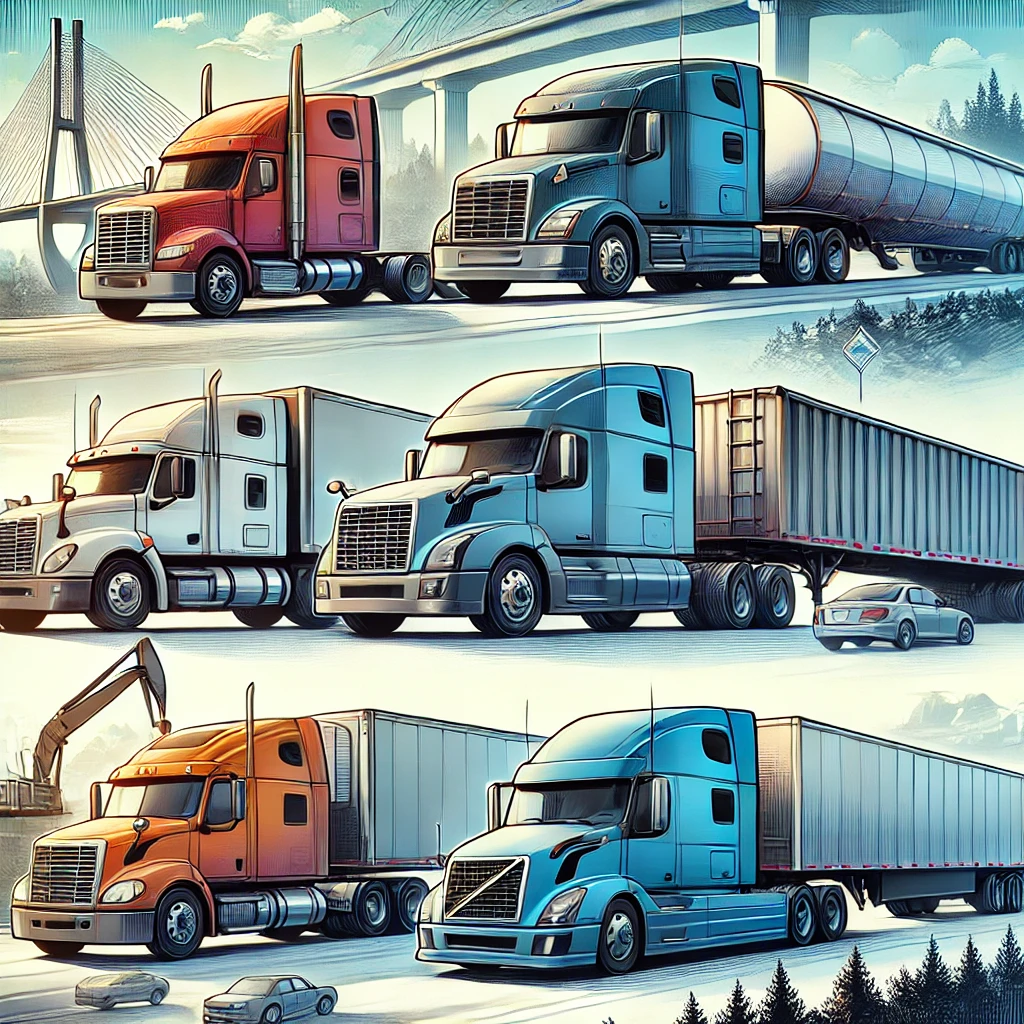Guide to Trucks
The Ultimate Guide to Trucks: Everything You Need to Know
Trucks are a vital part of our daily lives, serving industries and individuals alike. Whether you’re a logistics manager, a construction professional, or simply a truck enthusiast, understanding the world of trucks can be incredibly rewarding. This comprehensive guide explores the different types of trucks, their applications, and essential factors to consider when choosing the right truck for your needs.
What Are Trucks?
Trucks are motor vehicles designed to transport cargo, goods, or specialized equipment. They range from small pickups to massive heavy-duty vehicles. Trucks are the backbone of industries like construction, transportation, and agriculture, offering unmatched utility and versatility.
Types of Trucks
1. Pickup Trucks
Pickup trucks are smaller, versatile vehicles often used for personal and light commercial purposes. They typically feature an open cargo area with low sides and a tailgate.
Popular models: Ford F-150, Chevrolet Silverado, Ram 1500.
2. Box Trucks
Box trucks, also known as cube vans, are medium-sized vehicles with an enclosed cargo area. They’re ideal for moving goods and are widely used by delivery companies.
Popular models: Isuzu NPR, Ford E-Series, GMC Savana.
3. Dump Trucks
Dump trucks are heavy-duty vehicles with an open-box bed, which can be lifted to deposit materials such as sand, gravel, or demolition waste.
Popular models: Caterpillar 797F, Volvo A40G, Komatsu HD785.
4. Semi-Trucks
Semi-trucks, or tractor-trailers, are the giants of the road, designed for long-haul transportation of goods. They consist of a truck tractor and a detachable trailer.
Popular brands: Freightliner, Kenworth, Peterbilt.
5. Flatbed Trucks
Flatbed trucks have an open cargo bed without sides or a roof, making them ideal for transporting oversized or irregularly shaped loads.
Popular models: International LT Series, Ford F-750, Mack Anthem.
Key Features to Look for in a Truck
1. Payload Capacity
The payload capacity determines how much weight a truck can carry. For heavy-duty tasks, opt for trucks with higher payload ratings.
2. Engine Power
The engine’s horsepower and torque significantly affect a truck’s performance. Diesel engines are preferred for heavy-duty applications due to their superior torque.
3. Fuel Efficiency
Fuel costs can quickly add up, especially for commercial trucks. Look for models with advanced fuel-saving technologies.
4. Safety Features
Modern trucks come equipped with advanced safety features such as lane departure warnings, adaptive cruise control, and collision mitigation systems.
5. Maintenance Costs
Consider the long-term maintenance costs, including parts availability and service intervals, when choosing a truck.
Popular Truck Applications
1. Logistics and Transportation
Trucks play a crucial role in transporting goods across cities and countries, ensuring supply chain efficiency.
2. Construction
Dump trucks and flatbed trucks are indispensable in construction, transporting materials like cement, steel, and soil.
3. Agriculture
Trucks like pickups and flatbeds are used to transport agricultural products, machinery, and livestock.
4. Emergency Services
Specialized trucks such as fire engines and ambulances are critical for emergency response.
5. Moving and Delivery
Box trucks are widely used by moving companies and e-commerce businesses for delivering goods.
Top Truck Brands in 2024
1. Ford
Ford’s F-Series continues to dominate the pickup truck market with its reliability, performance, and advanced technology.
2. Freightliner
Known for its semi-trucks, Freightliner offers robust and efficient vehicles for long-haul transportation.
3. Volvo
Volvo’s trucks are synonymous with safety and innovation, making them a favorite in the heavy-duty segment.
4. Toyota
Toyota’s Tacoma and Tundra models are renowned for their durability and off-road capabilities.
5. Kenworth
Kenworth manufactures high-performance trucks tailored for both regional and long-haul applications.
Future of Trucks: Trends to Watch
1. Electric Trucks
Electric trucks like the Tesla Semi and Rivian R1T are revolutionizing the industry with zero emissions and lower operating costs.
2. Autonomous Driving
Self-driving technology is being integrated into trucks to enhance safety and efficiency.
3. Telematics and IoT
Telematics systems provide real-time data on vehicle performance, helping fleet managers optimize operations.
4. Sustainability
With growing concerns about climate change, manufacturers are focusing on sustainable materials and fuel-efficient designs.
How to Choose the Right Truck for Your Needs
-
Define Your Purpose: Determine whether you need the truck for personal use, business, or industrial applications.
-
Set a Budget: Consider both the upfront cost and long-term expenses such as fuel and maintenance.
-
Research Brands and Models: Compare features, reviews, and specifications to find the best fit.
-
Test Drive: A test drive can help you assess comfort, performance, and handling.
-
Consult Experts: Seek advice from industry professionals or dealers to make an informed decision.
Conclusion
Trucks are indispensable vehicles that serve a wide range of purposes, from personal transportation to industrial applications. By understanding the different types of trucks, their features, and their applications, you can make an informed choice tailored to your needs. With technological advancements and a focus on sustainability, the future of trucks looks brighter than ever.
